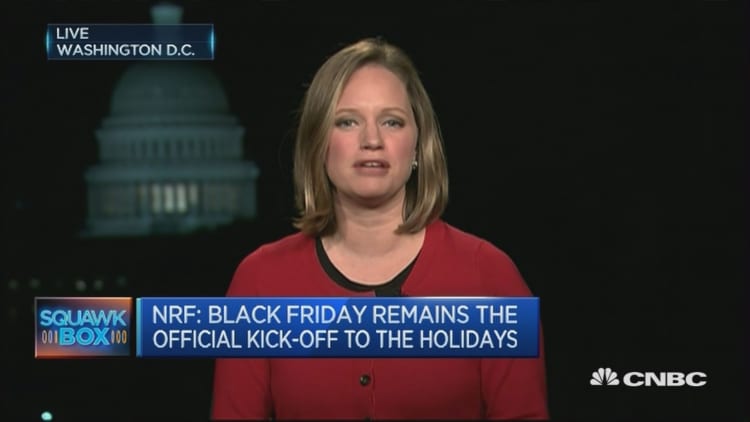
Black Friday this week will feature cut-throat deals, but how can this be profitable for retailers?
Rock bottom freight rates are contributing to the offers.
A deep slump in shipping volumes spurred by weaker demand for commodities and slower global trade has a silver lining in sending bulk and container rates to record lows, allowing good to be shipped at low costs, according to real-time freight rate database Freightos.
Figured pulled from the database by Freightos highlighted a few key products that may fill holiday season shopping baskets at lower costs because of shipping rates, noting for example than a $2,000 Apple MacBook Pro costs $1.50 to import into the U.S. by freighter.
At the same time, it costs 2.5 times more for overnight delivery from New Jersey to New York via trucks for a 55-inch television set than it does sending by ocean freight from the South Korea to the U.S. The largest ocean liners can hold over 1.2 million TV sets, underscoring the economy of scale.
According to a Friday report from IHS Markit, which runs a maritime information service, the spot Asia-U.S. West Coast ocean freight rate fell 18 percent from a week ago to $1,687 per 40-foot-equivalent unit.
The tanking of ship-based freight rates has spurred a switch from more expensive air cargo. Cell phones for instance, used to be shipped via air, but are now increasingly shipped via ocean, said Zvi Schreiber, CEO of Freightos.
But even as ocean-borne freight costs plunge, goods carried by air are also a bit of a bargain and would represent just 1 percent of an Apple 9.7-inch iPad Pro's discounted Black Friday price at Best Buy.
The downside is that making money for ocean-based shippers is a long reach, and in the case of South Korea's Hanjin Shipping Co., filed for receivership in August. Indeed, even as the wider industry heads for expected consolidation, the trend for now is fierce competition that benefits companies with goods to sell abroad.
"At the end of the day, the incredibly competitive rates for shipping from Asia to the U.S. will certainly stave off re-shoring for the time being," said Schreiber.
The data provider expects ocean freight rates to stay seasonably low in the short-term, with some support in January due to order fulfillment ahead of an early Lunar New Year in the first month of the year.
Rates may also jump if another major container carrier like Hanjin goes belly up, added Schreiber.

